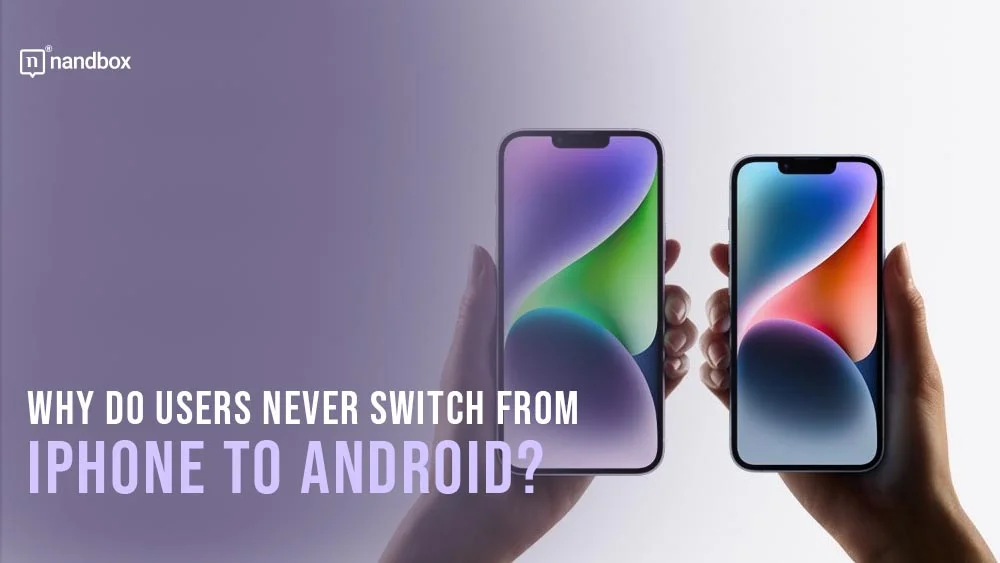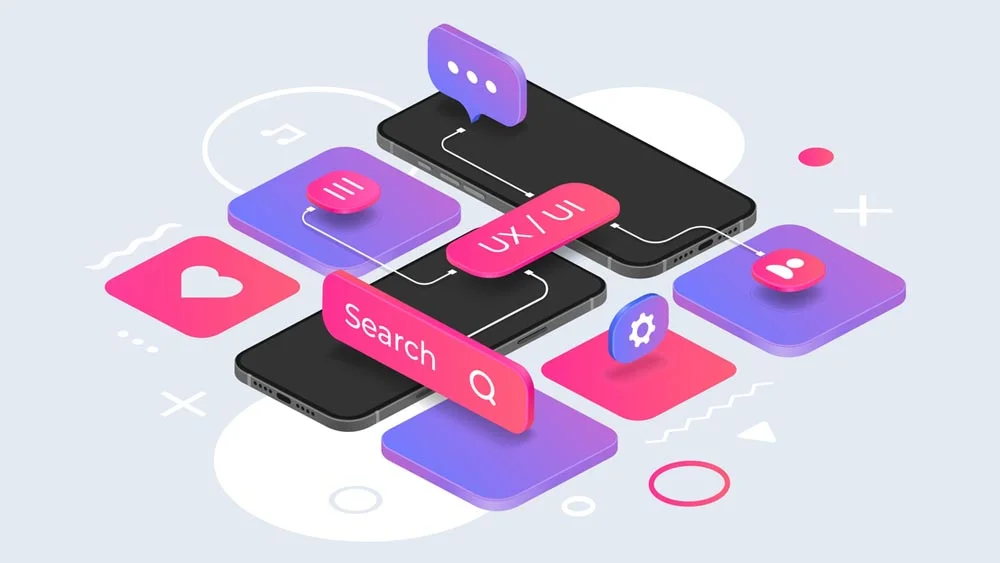The reason why iOS is so powerful when it comes to brand loyalty or user loyalty is a mystery to some. Most Android users don’t get it. What’s so special about iOS is that people tend to keep it on demand that way. That is why, in this article, we will analyze the reasons behind this commitment. Additionally, delve into the special features and experiences that iOS delivers to its users. That is in order to better understand why users never switch from iPhone to Android.
Reasons Why People Tend to Opt for an Android Device
In the past, Android smartphones offered a greater variety of personalization options and features. In addition to being far less expensive than iPhones. But the price gap between the flagship devices for Android and iOS is getting smaller and smaller. Also, most of the capabilities that are accessible on Android are also accessible on iPhones.
In addition, Apple has made numerous enhancements to its software. As well as its hardware over the course of the years. As a result, it is currently considered to be one of the finest companies in its field. That is in terms of efficiency, longevity of battery, software support, and other similar aspects.
If you are in the market for a new phone right now, it makes a lot more sense to go with an iOS device rather than an Android one. Some of the reasons why this is the case include the variety of devices available, how affordable they are, and how quickly they can be charged. In this article, I will provide evidence to support this claim. Simply, by demonstrating that iOS is superior to Android on the basis of substantial factors that you just cannot ignore.
The Reasons Why Do Users Never Switch From iPhone to Android: Let’s Start by the Secret of iOS’s Appealing Apps
The same program from the same developer frequently looks and functions better. That is, if we’re comparing the functionality on iOS and Android. However, there is an obvious explanation for this.
Because there are only a limited number of iPhone models with a certain range of dimensions and OS versions, developing an iOS app is simpler. On the other side, Android poses extra difficulties for developers, who must ensure that their apps work well and are compatible across a wide range of brands, models, sizes of screens, OS skins, etc.
This is also one of the reasons why popular apps like Snapchat, Instagram, and others, as well as some of Google’s own apps, look better, run better, and occasionally even receive newer features early on iOS compared to Android. You may have heard or noticed that iOS has far superior video and photo quality than Android when using applications like TikTok, Instagram, and Snapchat.
This is due to Android’s OS constraints, which prevent apps from directly recording video from the camera like they can on iPhones. Instead, they record the screen. So, the primary factors that make iOS superior to Android in this regard are the caliber of its apps and a better user experience in terms of functionality and speed. It is also one of the reasons for my steadfast refusal to use an Android phone again.
The Amount of UX and Animation Fluidity in iOS Is Way Better Than on Android
I can say with certainty that using an iOS smartphone as opposed to an Android one is considerably smoother and more fluid after using my mom’s Note 20 and my iPhone 11 side by side. Even though both phones have a 60 Hz refresh rate, iOS has generally smoother transitions and animations.
I think this is because Apple controls every aspect of the iOS experience, from the hardware to the software, but with Android devices, different manufacturers choose the hardware requirements while Google develops the software interface. The graphics are still not as fluid as those on iOS devices, especially in the case of Google’s own Pixel family of smartphones, where they have complete control over both the hardware and the software.
In addition to this element, makers like Samsung and Huawei have their own unique custom skins on top of Android, which affect performance and the user experience as a whole.
Therefore, the lack of smoothness in the motions and transitions, as well as the overall user experience, is another reason I would not think Android is a feasible alternative for my future phone.
Why Do Users Never Switch From iPhone to Android: Intrusive Ads in System Applications on Any Android Device
This is one of the main reasons that I hold on to the idea of an iOS device. On my phone, I have never experienced intrusive advertisements in any of my device’s system applications. Some people don’t mind it. I am definitely not one of them. I could smash my phone or hit my head against a wall. That is, if an ad interrupted me from something that I was doing.
As I mentioned, one of the aspects of iOS that I appreciate the most is that it comes equipped with fantastic system apps that are not only really helpful but also don’t get in the way and, most importantly, do not contain any advertisements.
Built-in applications, such as Memos, Calendar, Podcasts, and the News and Weather app, for example, are highly designed and focus on giving a wonderful user experience while additionally enhancing the user’s life in some way. This is especially true of the built-in apps that come standard on iOS devices.
When you have spent hundreds of dollars on a smartphone, it is completely unacceptable for it to have unwanted advertisements or notifications, but iOS does not have this problem. Another advantage of iOS is that it does not contain bloatware, unlike Android, and the system apps do not have these problems either. I don’t want to be harassed with advertisements and spam on a device that I have already spent hundreds of dollars on, which is why I intend to keep buying iPhones for the time being and avoid most Android phones.
Taptic Engine Improves System-Wide Responsiveness
The iPhone is clearly the winner when compared to the vibration motors found in the majority of leading Android handsets.
The iPhone’s vibration motor is dubbed the Taptic Engine. It uses haptic feedback to simulate the click and feel of a physical button. While both Android and iOS phones have a vibration motor, Apple has the edge. That is because they produce their own Taptic Engine and operating system. Which gives them the ability to set the vibration motor to operate at the ideal resonance and frequency.
The majority of Android devices have an independent vibration motor that was obtained from an unidentified manufacturer; thus, they lose this advantage because they can’t fully combine the software and hardware to provide the optimum user experience. Therefore, the iPhone is the clear choice if you want to possess an electronic device that feels quick and intuitive to operate.
Why Do Users Never Switch From iPhone to Android: The Built-in Apps Are Genuinely Beneficial and Far Superior
If you use the default apps on an iPhone and a Samsung phone running the latest iOS and Android, respectively, you can readily tell which apps are more effective and valuable. The Android file manager software is better organized, has more functions, and is easier to use than the iOS one.
After the file manager app, iOS applications like Notes, Freeform, and Fitness are objectively better than Android apps. Some manufacturers’ built-in Android apps are superior at monitoring sleep in the Health app and multi-account compatibility in the Mail app. iOS apps have the best system apps overall.
The Safari browser is the only iOS program that cannot be replaced by a third-party Android version with more features and capabilities. Safari remains one of the quickest and best mobile browsers, but it’s not accessible on Android. It supports extensions, privacy reports, pop-up previews, and online security. The absence of the Safari browser alone would make me never want to move to Android again. Not that crucial as a feature to somebut if you’re like me, you wouldn’t want to switch either
Lost Your Phone Before? With Apple, You’re Guaranteed to Never Experience This!

The Find My network of Apple products is one iOS feature that Android phones would probably never be able to master. You may already be aware of Find My. A vast network of Apple users and their devices, which enables you to locate any of your Apple devices or someone who owns one. Additionally, airtags make it possible to monitor and find whatever you want. Which is a compelling argument for sticking with iOS and never moving to Android.
The best thing regarding the Find My function is that it still functions even if the missing device is off. It does this by forcing any nearby Apple device to send you its most recent location using Bluetooth sensors. You may counter that there are good third-party apps that do this, as well as Google and Samsung’s own choices for recovering lost Android devices.
However, none of them can compare to Apple’s Find My’s enormous network size or iOS’s hardware and software capabilities. Being a part of the Apple ecosystem, in my opinion, is more than justifiable given the certainty that, even if you lose your iOS device, you have a good likelihood of locating it, as opposed to losing an Android one.
Final Thoughts on Why Do Users Never Switch From iPhone to Android
The overall summary is that I support iOS with all my heart. That is because it offers users a system that is nearly flawless. To this day, I am impressed with each and every system update. My iPhone simply opens up new options in technology that I didn’t think I needed, to be honest. Now that we’re done talking about the pros and cons of each system. Let’s discuss how iOS app making is made easier with nandbox.
What is nandbox? nandbox is a native no-code app builder that helps you create seamless apps in no time. Our app builder can help you create the perfect iOS app for a fraction of the cost. You can simply depend on our easy drag-and-drop feature addition method and voila! you will have yourself a merry app! Sign up now and enjoy our 14-day free trial, which will allow you to get to know our app builder. Additionally, familiarize yourself with each and every feature and module.




